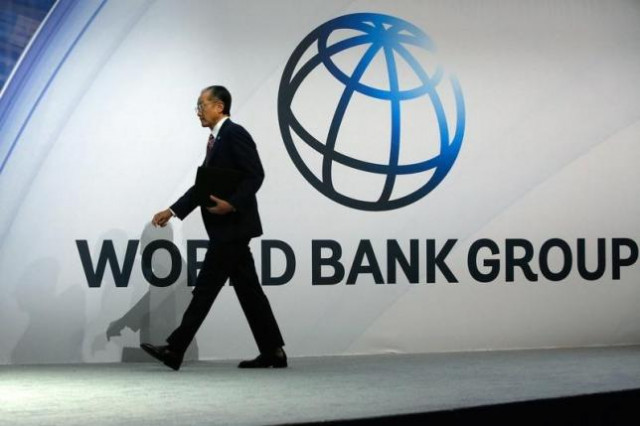Pakistan rejects World Bank’s growth estimates
Insists final GDP growth for FY21 will exceed provisional figure of nearly 4%

Pakistan on Friday termed the World Bank’s estimate of 3.5% economic growth in the previous fiscal year “unrealistic”, citing that the final growth figure would even exceed the provisional figure of nearly 4%.
Reacting to the World Bank’s conservative assessment of Pakistan’s economy, the Ministry of Finance stated that the Washington-based lender also under-estimated current fiscal year’s economic growth rate at 3.4%.
The World Bank’s growth estimate of 3.5% for fiscal year 2020-21 against the National Accounts Committee (NAC) estimate of 3.94%, released by the Pakistan Bureau of Statistics (PBS), is based on an “unrealistic assessment”, stated the Economic Advisory Wing of the Ministry of Finance.
The World Bank’s reluctance to accept last year’s official estimate of 3.94% had given credence to the independent estimates that the economy had grown by around 3.5% in the previous fiscal year that ended in June.
The provisional estimate of GDP growth for FY21 was 3.94% based on 2.8% growth in agriculture, 3.6% growth in industry and 4.4% growth in services, according to the Ministry of Finance.
However, the large-scale manufacturing (LSM) growth was provisionally taken as 9.3% in the NAC for estimating GDP growth of 3.94%. LSM data is available with a lag of two months and recent data released by the PBS showed LSM growth of 15.2% in FY21, it added.
The Ministry of Finance said that the recent data of crops, mentioned by the Federal Committee on Agriculture (FCA), suggested that the production of important crops was higher than the estimates taken by the NAC.
It added that the production of wheat was recorded at 27.5 million tons compared to 27.3 million tons, while the production of maize was 8.9 million tons against 8.5 million tons released by the PBS for estimating GDP growth of 3.94%.
“After incorporating the latest available information, the GDP growth in FY21 will improve far above 3.94% compared to the estimate of 3.5% by the World Bank,” said the Ministry of Finance.
“The World Bank’s GDP growth projection of 3.4% for FY22 is again underestimated,” said the ministry. The economy of Pakistan has shown a V-shaped recovery in FY21 without creating any external and internal imbalances.
IMF revises up Pakistan’s real GDP growth rate to 3.9%
However, the finance ministry’s reply seemed not to be in line with the ground realities as Finance Minister Shaukat Tarin himself talked about the external imbalances publicly and said that the government would take measures to slow down the economic growth.
The ministry said that the government is committed to ensuring that the growth momentum remains intact with macroeconomic stability and GDP growth for FY22 will remain close to 5%.
The Ministry of Finance said that the production of important crops is encouraging like the sugarcane output that stood at 87.7 million tons against 81 million tons last year while rice yield came in at 8.8 million tons against 8.4 million tons last year.
On the other hand, maize production was recorded at 9 million tons and cotton output stood at 8.5 million bales against 7.1 million bales last year.
The finance ministry said that overall the commodity producing sector will perform better and its spillover impact will be felt in the services sector.
Thus, the services sector is projected to continue its growth momentum on account of better performance of agriculture, industry and financial sectors.
Furthermore, mass vaccination of the general public will also have a significant impact on the recovery of other private services in particular and services in general.
The finance ministry also commented on the World Bank’s assessment of adopting tight monetary and fiscal policies and its implication for economic growth.
“On one hand, the government is tightening monetary and fiscal policies to contain the demand pressures while on the other, it is encouraging growth-supporting policies.”
The World Bank had also said that inflation in Pakistan would edge up to 9% in the current fiscal year on the back of expected increase in electricity prices.
Published in The Express Tribune, October 9th, 2021.
Like Business on Facebook, follow @TribuneBiz on Twitter to stay informed and join in the conversation.



















COMMENTS
Comments are moderated and generally will be posted if they are on-topic and not abusive.
For more information, please see our Comments FAQ